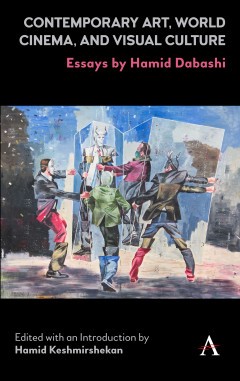Contemporary Art, World Cinema, and Visual Culture: Essays by Hamid Dabashi is a collection of writings by the acclaimed cultural critic and scholar. A thorough Introduction rigorously frames chapters and identifies in Dabashi’s writings a comprehensive approach, which forms the criteria for selecting the essays for the volume. The Introduction also teases out of these essays the overarching theme that holds them together, the manner they inform a particularly critical angle in them and the way they cohere. This Introduction dwells on the work of one scholar, public intellectual and theorist of modern and contemporary arts to extrapolate more universal issues of concern to art criticism in general. These scattered materials and their underlying theoretical and critical logic are a unique contribution to the field of modern and contemporary arts.
Edited with an Introduction by Hamid Keshmirshekan
Official Anthem Press Page: https://anthempress.com/contemporary-visual-and-performing-arts-hb
Reviews:
“Dabashi is the grammarian of hope. He is not offering us the common liberal hopeful analysis; rather it is the analytical hope that Gramsci yearned for but couldn’t see. In these essays, Dabashi explicates the architectonics of oppressive vision(s), only to show us some of the real possibilities of practicing visions of hope.” Ismail Nashef, Associate Professor, Doha Institute for Graduate Studies, Qatar
“A critical and insightful collection of texts, challenging many ideas about cultural relations between ‘East’ and ‘West’—with Shirin Neshat’s work as a unifying thread.” Silvia Naef, Professor, Arabic Studies Section, University of Geneva, Switzerland
“Hamid Dabashi’s transcultural and intradisciplinary scholarship has provided a much-needed and otherwise-absent alternative critical voice in the field. The essays selected in this volume by Hamid Keshmirshekan enrich our understanding of regional and diasporic Middle Eastern contemporary art and aesthetics from a diverse and postcolonial perspective.” Nada Shabout, Professor of Art History, University of North Texas, USA



 Columbia University
Columbia University Aljazeera
Aljazeera Middle East Eye
Middle East Eye Springer Palgrave
Springer Palgrave